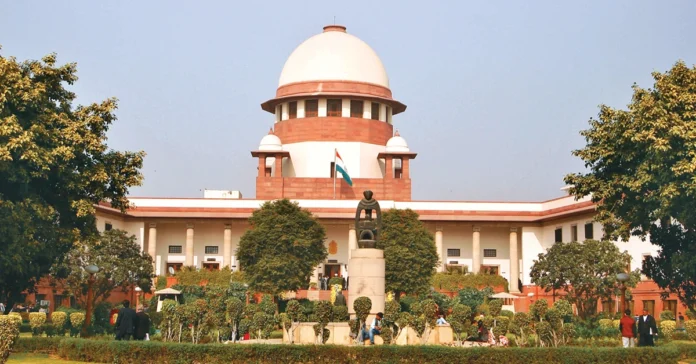In the recent case of Rina Kumari vs Dinesh Kumar Mahto, the Supreme Court provided the much-needed clarity on the nature of proceedings under Section 125 of the Code of Criminal Procedure (Cr.PC). While non-compliance carries penal consequences, the Court reaffirmed the primarily civil nature of these proceedings, which leverage the efficiency of criminal courts to protect vulnerable individuals.
The verdict, delivered by a bench comprising Chief Justice Sanjiv Khanna and Justice Sanjay Kumar, overturned a Jharkhand High Court order denying maintenance to a wife based on her refusal to return to the matrimonial home despite a restitution of conjugal rights decree in favour of her husband.
The Court’s Observations
The Supreme Court emphasized that Section 125 Cr.PC is a tool of social justice, enshrined within the constitutional framework of Articles 15(3) and 39. The Court ruled that a wife’s justified refusal to comply with a restitution order does not bar her from claiming maintenance. It observed that such decrees are not conclusive in Section 125 proceedings, and each case must be evaluated based on its unique circumstances.
The Court further noted that the husband’s neglect, particularly following the wife’s miscarriage, constituted mental cruelty. His actions justified the wife’s decision not to return to the matrimonial home, rendering her eligible for maintenance.
Key Highlights From The Judgment
• Nature of Proceedings: The Court clarified that Section 125 Cr.PC proceedings are civil in nature, albeit enforced through criminal courts for expedience and efficacy.
• Mental Cruelty: Drawing from Parveen Mehta vs Inderjit Mehta (2002), the Court stressed that mental cruelty must be assessed holistically, considering behavioural patterns and not isolated incidents.
• Wife’s Justification: The husband’s failure to demonstrate genuine efforts toward reconciliation, coupled with his neglect following the wife’s miscarriage, established sufficient grounds for her refusal to return.
• Distinction in Terms: The Court highlighted the difference between “failure” and “refusal” in Section 125(4), noting that only unjustified refusal disentitles a wife from maintenance.
Precedents and Context
This ruling aligns with previous judgments underscoring the intent of Section 125 Cr.PC to prevent vagrancy and destitution among deserted wives. In Chaturbhuj vs Sita Bai (2008), the Court emphasized that maintenance aims to ensure a wife’s dignity and sustenance, not to punish neglect. Similarly, in Kirtikant D. Vadodaria vs State of Gujarat (1996) and Amrita Singh vs Ratan Singh (2018), the Court held that justified refusal to cohabit—particularly in cases involving cruelty or dowry demands—does not negate a wife’s right to maintenance.
The Court also drew from Shanti Kumar Panda vs Shakuntala Devi (2004) to reiterate that maintenance proceedings are independent of restitution decrees. Finally, in Bhuwan Mohan Singh vs Meena (2014), it ruled that maintenance extends beyond survival, ensuring a dignified standard of living akin to that enjoyed within the matrimonial home.
The Judgments’s Implications
This decision reinforces the principle that restitution of conjugal rights cannot be used as a shield to deny maintenance. It compels husbands to fulfill their marital responsibilities and discourages the misuse of restitution orders as a procedural advantage.
By directing the husband to pay Rs 10,000 per month in maintenance from the date of filing the application (August 3, 2019) and setting a clear timeline for arrears payments, the Court has emphasized timely and fair enforcement.
—By Abhilash Kumar Singh and India Legal Bureau


